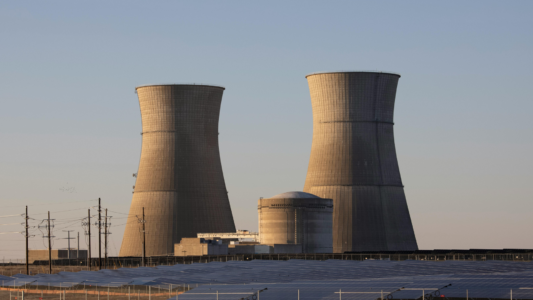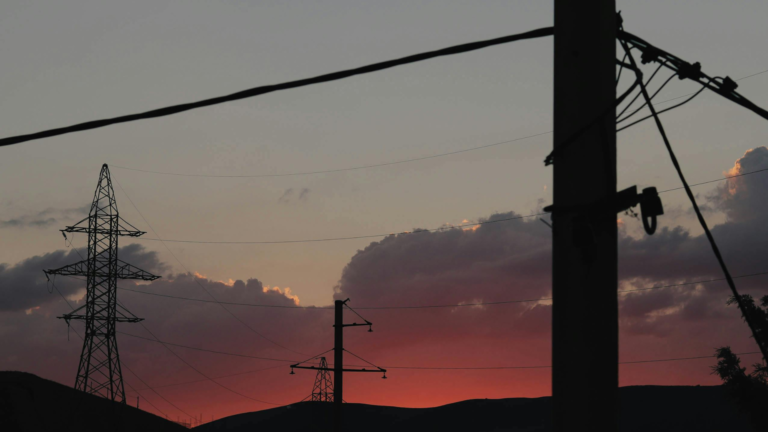Author: PPD Team Date: 11/04/2025

True-up order issued for Korba Power Thermal Power Station for FY 2023-24
The Madhya Pradesh Electricity Regulatory Commission (MPERC) has issued a True-Up Order for the 1×300 MW Korba Power Thermal Power Station for the fiscal year 2023-24. The order addresses disputes raised by the petitioner, Korba Power Limited, regarding additional capital expenditures, operational costs, and revenue adjustments.
A primary issue involved the petitioner’s claim of Rs. 2.08 crore for additional capitalization, which was contested by M.P. Power Management Company Ltd. (MPPMCL). MPPMCL argued that this should be classified as operational expenses rather than capital expenditures. The Commission sided with MPPMCL, ruling that the assets did not meet the criteria for additional capitalization under Regulation 28.1 of the MPERC Tariff Regulations, 2020.
Another major point of contention was the petitioner’s claim of a Rs. 21,048 lakh revenue gap. MPPMCL raised concerns about discrepancies between the claimed and actual expenditures. The petitioner defended the gap, attributing it to previously approved additional capitalizations. The Commission allowed the petitioner’s claims for Return on Equity (RoE) and depreciation but rejected the additional capitalization.
The Commission also approved the petitioner’s claim of Rs. 97.47 crore for operational and maintenance expenses for FY 2023-24, in line with regulatory norms. Additionally, the interest on loan capital was confirmed at a weighted average rate of 13.45%, amounting to Rs. 17.00 crore.
In conclusion, the MPERC’s True-Up Order stresses adherence to regulatory guidelines while balancing the financial interests of the power station. The Commission has instructed the petitioner to implement the order and recalculate bills for energy supplied from April 1, 2023, to March 31, 2024, ensuring transparency and compliance in the sector.
Petition No: 69 of 2024 | Read the full order here.
KSEB wins appeal against CERC order on income tax reimbursement to NLC
The Appellate Tribunal for Electricity (APTEL), in Appeal No. 138 of 2017, has set aside a Central Electricity Regulatory Commission (CERC) order that had allowed Neyveli Lignite Corporation (NLC) to seek revised income tax reimbursements from Kerala State Electricity Board (KSEB) and other beneficiaries.
The dispute centred around income tax reimbursements for NLC’s Thermal Power Station-I Expansion (TPS-I Expansion) project for the years 2003–09. As a beneficiary of the project, KSEB was allocated 14% of the station’s capacity.
CERC had earlier ruled in 2012 that no income tax was payable by KSEB for the years in question, as there was either no taxable income or NLC was required to avail tax holiday benefits under Section 80-IA of the Income Tax Act. That ruling was upheld by APTEL in Appeal No. 250 of 2012.
However, NLC filed a fresh petition (No. 02/MP/2014) before CERC, claiming that tax benefits under Section 80-IA were not applicable to its mining operations associated with TPS-I Expansion. Based on a revised computation, NLC sought partial reimbursement of income tax dues. CERC accepted the revised claim in its order dated 5 September 2016, which KSEB challenged in the current appeal.
KSEB argued that the order lacked reasoning, failed to address objections, and was contrary to earlier settled rulings. APTEL agreed, observing that the CERC order was a non-speaking, unreasoned decision that ignored critical objections.
The Tribunal emphasised that quasi-judicial authorities must give detailed, reasoned orders. It found the CERC’s approach unacceptable, especially in overlooking objections related to the separation of power and mining operations for tax purposes.
APTEL set aside the impugned order and remanded the matter back to CERC for a fresh, reasoned decision. It directed CERC to conclude the matter within two months and ordered that this judgment be circulated to all State and Central Electricity Commissions.
Petition No: APPEAL No. 138 of 2017 | Read the full order here.
APTEL upholds CERC jurisdiction over NPCIL-GUVNL tax dispute
The Appellate Tribunal for Electricity (APTEL), in Appeal No. 134 of 2024, upheld the jurisdiction of the Central Electricity Regulatory Commission (CERC) to adjudicate a tax-related dispute between Nuclear Power Corporation of India Ltd (NPCIL) and Gujarat Urja Vikas Nigam Ltd (GUVNL). The judgment was issued on 27 March 2025.
The dispute arose over NPCIL’s billing of tax components under two Power Purchase Agreements (PPAs) signed in 2005 and 2008 for electricity supplied from nuclear stations. GUVNL alleged that NPCIL overcharged Rs 1.20 billion by using an inflated effective tax rate between FY2011–12 and FY2021–22. NPCIL calculated the Return on Equity (RoE) tax adjustment based on a “trial and error” method rather than the actual tax rate paid, as per GUVNL’s claims.
CERC, in its interim order dated 13 January 2024, held that it had jurisdiction under Sections 79(1)(a) and 79(1)(f) of the Electricity Act, 2003 to adjudicate the dispute, since it involved tariff-related components such as tax on RoE. NPCIL challenged this, arguing that tariff determination for atomic power plants falls exclusively under Section 22 of the Atomic Energy Act, 1962, and hence, CERC lacked jurisdiction.
However, APTEL rejected NPCIL’s argument. It ruled that NPCIL, being a company incorporated under the Companies Act, is a separate legal entity and not exempt from the Electricity Act under Section 184. APTEL clarified that Section 22 of the Atomic Energy Act allows the Department of Atomic Energy to fix tariffs, but it does not grant exclusive jurisdiction over dispute resolution.
The tribunal concluded that while tariff fixation remains with the Department of Atomic Energy, disputes related to interpretation and application of tariff provisions in PPAs fall within CERC’s jurisdiction. Thus, the appeal was dismissed, and the CERC order was upheld.
Petition No: APPEAL NO. 134 OF 2024 & IA NO. 350 OF 2024 | Read the full order here.
HPERC directs CEA to reassess design energy for Baspa-II hydro project
The Himachal Pradesh Electricity Regulatory Commission (HPERC) has directed the Central Electricity Authority (CEA) to reassess the design energy of the 300 MW Baspa-II Hydro Electric Project, operated by JSW Hydro Energy Ltd., citing consistently higher generation levels than originally approved.
The move stems from a representation by JSW following a 2024 High Court order that stayed HPERC’s earlier directive to the state’s Directorate of Energy (DoE) for re-evaluation of hydrological data. The company argued that only the CEA has jurisdiction to review design energy for large hydro projects, referencing the project’s ₹1600 crore cost and the CEA’s original 1994 techno-economic clearance.
The case centered around Table 23 of HPERC’s June 2024 tariff order, which showed that for 17 of the past 20 years, Baspa-II had generated more electricity than its approved design energy of 1213 MUs. Stakeholders, including HPSEBL, DoE, HPEA, and consumer representatives agreed that revision was warranted but emphasized that CEA is the competent authority.
HPERC upheld the applicability of Regulation 42(7)(c) of its 2024 Hydro Generation Tariff Regulations, which allows upward revision of design energy after ten years of excess generation. However, it deferred the assessment task to the CEA, stating that the authority which grants approval must also carry out revisions.
The CEA has been instructed to form an expert committee, analyze updated hydrological data, and submit a revised report within three months. The DoE has been asked to forward all relevant records to the CEA within 15 days.
APTEL remands CERC order on JSW Hydro’s energy shortfall claim
The Appellate Tribunal for Electricity (APTEL), in Appeal No. 13 of 2022, set aside a Central Electricity Regulatory Commission (CERC) order dated 4 February 2020 and remanded it for fresh consideration. The case concerns JSW Hydro Energy Ltd’s claim for recovery of Rs 266.3 million as energy charge shortfall for FY 2018–19 from distribution licensees, including Punjab State Power Corporation Ltd (PSPCL).
JSW Hydro, operator of the 1000 MW Karcham Wangtoo hydro project, injected 3942.22 MUs against a scheduled 3906.25 MUs in FY 2018–19. The 35.97 MUs of over-injected, unscheduled energy was settled under the Deviation Settlement Mechanism (DSM). JSW Hydro sought compensation for a 152.80 MU shortfall against its saleable design energy of 3591.71 MU under Regulation 44(6)–(8) of the CERC Tariff Regulations, 2019.
CERC allowed the shortfall claim, excluding the 35.97 MUs from the calculation, stating it was settled under DSM and not part of scheduled energy. PSPCL and other buyers argued this led to double recovery—once under DSM and again through energy shortfall charges.
APTEL noted that in three later orders—dated 26 May 2023, 26 September 2023, and 1 January 2024—CERC held that energy settled under DSM must be deducted when computing energy shortfall to prevent double recovery. These orders, passed under the same 2019 Tariff Regulations, deviated from the approach taken in the impugned 2020 order.
The Tribunal emphasised regulatory consistency and found that CERC had not provided reasons for the shift in interpretation. APTEL therefore remanded the case back to CERC for reconsideration in line with its later rulings. CERC has been directed to complete the review within three months.
Petition No. APPEAL No. 13 of 2022 | Read the full order here.
APTEL directs CERC to relax NAPAF for NTECL Vallur plant from 85% to 83%
The Appellate Tribunal for Electricity (APTEL) has directed the Central Electricity Regulatory Commission (CERC) to relax the Normative Annual Plant Availability Factor (NAPAF) for NTPC Tamil Nadu Energy Company Ltd. (NTECL)’s Vallur thermal power plant from 85% to 83% for the financial years 2017–18 and 2018–19.
This order, pronounced on 8 April 2025 by Hon’ble Mr. Virender Bhat (Judicial Member) and Hon’ble Mr. Sandesh Kumar Sharma (Technical Member), sets aside CERC’s earlier refusal to use its power under Regulation 54 of the 2014 Tariff Regulations.
NTECL, a joint venture of NTPC Limited and Tamil Nadu Generation and Distribution Company Ltd. (TANGEDCO), operates a 1,500 MW coal-based thermal power station at Vallur. The station’s three units began commercial operations between 2012 and 2015.
The issue arose when NTECL faced shortfall in coal supply despite a Fuel Supply Agreement (FSA) with Mahanadi Coalfields Limited (MCL) for 46.2 million metric tonnes annually. The Appellant sought an increase to 65.5 million metric tonnes to accommodate all three operational units. Due to this supply gap, it could not maintain the 85% availability benchmark required to recover full fixed charges.
APTEL found that CERC failed to consider whether the coal shortfall was due to factors beyond NTECL’s control. It concluded that denying relaxation caused financial loss and a miscarriage of justice. The Tribunal emphasized that its direction did not override CERC’s authority, but corrected an oversight where sufficient grounds for relaxation existed.
CERC has now been directed to revise the NAPAF from 85% to 83% for the said period, allowing NTECL to recover its fixed charges accordingly.
Petition No: APPEAL No. 318 of 2019 | Read the full order here.
CERC partially sllows NTPC’s review petition on Talcher STPS-II tariff dispute
The Central Electricity Regulatory Commission (CERC) has partially upheld NTPC Limited’s review petition challenging its 2023 tariff order for the 2,000 MW Talcher Super Thermal Power Station (STPS)-II (2019-24). The petition contested three key issues: coal price computation, depreciation calculation, and water charges.
On the Weighted Average Coal Price, NTPC argued that the CERC’s use of a 97.2:2.8 blending ratio (domestic vs. imported coal) from October–December 2018 led to an incorrect rate of ₹1,897.39/MT instead of its claimed ₹1,944.33/MT. The Commission upheld its original decision, stating the ratio was consciously chosen and aligned with regulations. Claims for diesel costs in coal transport and “other charges” (stone picking, sampling) were initially disallowed but will be reviewed during tariff truing-up.
The Cumulative Depreciation error, where the CERC cited ₹4,03,773.43 lakh instead of ₹4,50,615.55 lakh for FY 2023-24, was acknowledged as an “error apparent on record.” The correction will be incorporated during truing-up.
For Water Charges, NTPC sought ₹262.82 crore based on its allocation agreement with Odisha, but the CERC approved ₹235.48 crore using a 10% annual escalation from 2018-19 rates. The Commission ruled that charges must align with actual consumption (3.5 m³/MWh norm) and not allocation, rejecting NTPC’s plea.
The order, issued on March 24, 2025, by a bench led by Chairperson Jishnu Barua, directed NTPC to submit detailed documentation on “other charges” during truing-up. States like TANGEDCO and KSEBL opposed NTPC’s claims, arguing they would burden consumers.
Petition No: 29/RP/2023 in 441/GT/2020 | Read the full order here.
CERC partly allows GRIDCO’s petition on Talcher STPS-II tariff order
The Central Electricity Regulatory Commission (CERC) has partly upheld GRIDCO Limited’s review petition against its 2023 tariff truing-up order for the 2,000 MW Talcher Super Thermal Power Station (STPS)-II for the 2014–19 period. GRIDCO challenged six components, including working capital interest, wage revisions, and infrastructure expenses.
On Interest on Working Capital (IOWC), GRIDCO claimed NTPC used incorrect “as received” Gross Calorific Value (GCV) data from January to March 2014, leading to higher charges. The CERC dismissed this, finding NTPC in compliance with regulatory norms despite infrastructure constraints.
Regarding wage revisions, the Commission acknowledged an error in normalizing Operations and Maintenance (O&M) expenses. The original order allowed Rs 14,124 lakh in excess recovery. Upon review, the CERC disallowed Rs 10,081 lakh of NTPC’s wage-related claims and directed a refund.
On electrostatic precipitator (ESP) upgrades, GRIDCO opposed the Rs 5,301 lakh allowance, citing missing emission data and incorrect interest charges. The CERC upheld the approval, stating the available unit-wise emission data and cost justifications were sufficient.
GRIDCO’s objections to expenses for interlocking the exchange yard and Merry-Go-Round (MGR) system to Kaniha mines were also rejected. The Commission validated Rs 379 lakh for railway safety works and Rs 113 lakh for signaling, citing their operational necessity. GRIDCO’s request to split costs between project phases was denied.
The Commission upheld the Rs 4,468 lakh cost of purchasing additional locomotives. It accepted NTPC’s reasoning that extra locomotives were required for coal transport, despite GRIDCO’s concerns about underused infrastructure.
Petition No: 16/RP/2023 in 392/GT/2020 | Read the full order here.
For more regulatory updates, read the latest orders covered on Power Peak Digest: Energy Regulatory Updates – Power Peak Digest
Featured photograph is for representation only.


